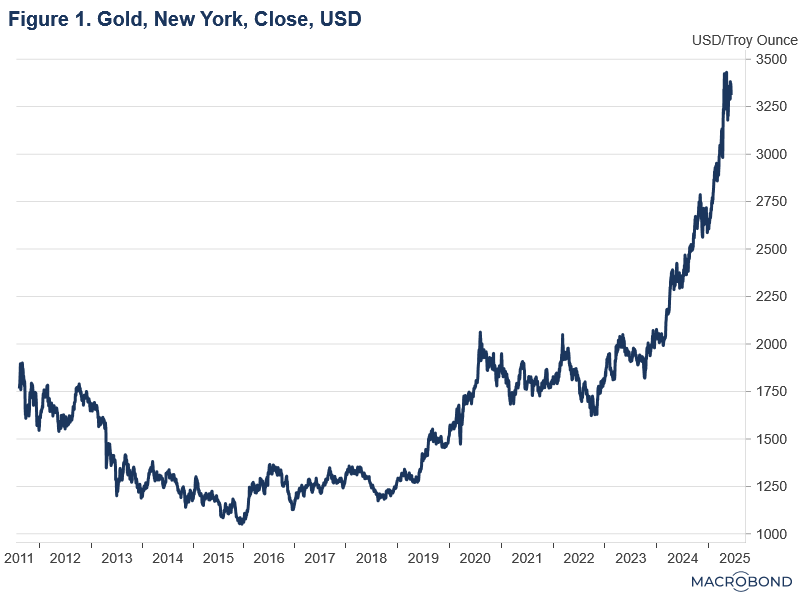What if Fort Knox’s Gold Is Missing or Impure?
From the desk of Adept Economics Director Gene Tunny
A recent question posed after a talk I gave to the Sydney branch of the Australasian Institute of Mining and Metallurgy (AusIMM) surprised me: What if the gold in Fort Knox isn’t as pure as we think—or if some of it’s missing?
I expanded on my answer on the night in the latest episode of my Economics Explored podcast, which featured returning guest Darren Brady Nelson, Chief Economist at Fisher Liberty Gold.
In the episode, Darren and I unpack the implications of impure or missing gold in Fort Knox. Could it shake confidence in the U.S. monetary system—or would it just be a minor loss on paper? And why does it matter if we’re no longer on a gold standard?
Let’s explore some of the key ideas discussed.
Why Fort Knox Still Matters
Fort Knox is one of the most famous gold depositories in the world. Although the United States officially left the gold standard in 1971, Fort Knox still maintains massive gold reserves—reportedly over 4,500 metric tons, or about 56% of the U.S. government’s total holdings (See United States Bullion Depository). At current market prices, it could be worth up to US$500 billion (See this Perplexity query).
While the US dollar today operates as fiat currency, Fort Knox carries significant symbolic and psychological weight. It represents strength, stability, and trust in American institutions. That’s why recent calls by figures like President Trump, Elon Musk, and Senator Rand Paul for a Fort Knox audit have gained traction. The last proper audit was more than 50 years ago.
What If the Gold Is Impure—or Missing?
Many gold bars in Fort Knox may not meet the “Good Delivery” standard of 99.5% purity. Why? A significant fraction of the gold was derived from melted-down coins, especially during the 1930s, when President Franklin D. Roosevelt banned private gold ownership and collected it en masse. These coins typically contain only 90% gold, mixed with other metals like copper and silver.
If a modern audit revealed that this gold is indeed impure—or worse, that some of it is missing—the consequences could include:
- A significant multi-billion-dollar reduction in the reported value of U.S. gold reserves;
- Political fallout and media frenzy; and
- A potential dent in public trust and global confidence in US institutions.
That said, as I point out in the episode, the dollar is no longer tied to gold, so any downgrade in Fort Knox’s gold value shouldn’t trigger a currency collapse.
In the podcast episode, Darren argues that while impure gold wouldn’t crash the economy, the optics and public trust implications could be significant. The bigger issue may be the lack of transparency and the sense that major institutions—like the Federal Reserve—aren’t being held accountable.
Why It Still Matters Today
Gold is enjoying a resurgence in attention and value, largely due to global economic uncertainty associated with the US-China trade war 2.0, among other concerns. As of mid-2025, it’s trading above $3,300 per ounce (Figure 1), with central banks worldwide buying up 1,000 metric tons annually to diversify away from the U.S. dollar (see this Reuters report: Central banks on track for 4th year of massive gold purchases, Metals Focus says | Reuters).

This episode of my Economics Explored podcast highlights why gold remains relevant as a hedge against inflation, a safe haven during geopolitical risk, and a symbol of sound money.
The Fort Knox question may seem curious, but it opens the door to deeper discussions: Should central banks be audited? What role should gold play in modern finance? Are fiat money systems sustainable?
Hear the Full Conversation
Darren Brady Nelson and I dive into all of this—and more—in the latest Economics Explored podcast episode.
Listen to the episode now and explore:
- Concerns over the purity of Fort Knox’s gold;
- Gold vs. the S&P 500 as a long-term investment; and
- Calls to audit the Fed.
Please check it out and let me know your thoughts by emailing me at contact@adepteconomics.com.au.
Finally, please note that the podcast episode and this article contain general information only and should not be considered financial advice.
Published on 9 June 2025. For further information, don’t hesitate to contact us via contact@adepteconomics.com.au or at 1300 169 870.